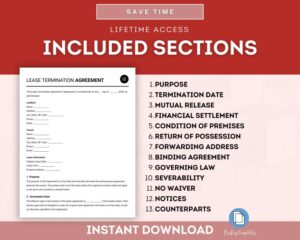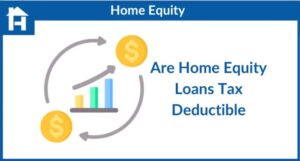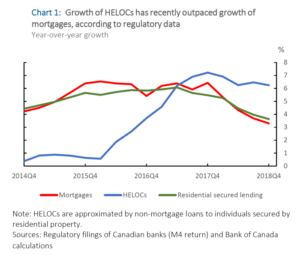
Welcome to the rollercoaster ride of Debt payoff, where we tackle the potentially frightful world of debt with the bravery of a circus lion and the finesse of a tightrope walker! If you’ve ever felt like you’re drowning in a sea of bills, don’t worry; we’ve got the life raft, complete with flotation devices (read: strategies) to help you float back to financial freedom.
In this thrilling escapade, we’ll break down the magic behind debt payoff techniques, from the infamous snowball and avalanche methods that can make your worries melt away, to the lesser-known but equally effective options like debt consolidation. Buckle up, grab your calculators, and let’s dive into the treasure chest of financial tools and resources that will have you shouting, “I’m debt-free!” in no time!
Understanding Debt Payoff

Debt payoff is the superhero we all need but often overlook. In the world of personal finance, it signifies the process of eliminating debts to regain control over one’s financial life. Imagine your debt as the pesky villain who keeps stealing your joy and financial freedom. When you focus on debt payoff, you’re essentially putting on your cape and saying, “Not today, debt!” This journey is not just about reducing numbers on a statement; it’s about restoring your peace of mind, improving your credit score, and finally being able to splurge on that IKEA bookshelf you’ve been eyeing without guilt.Two popular methods often emerge from the shadows, ready to assist in this epic battle against debt: the Snowball Method and the Avalanche Method.
Each has its own unique strategy, much like two different styles of fighting evil. The Snowball Method focuses on paying off the smallest debts first, providing quick wins that can boost your motivation. Meanwhile, the Avalanche Method tackles those high-interest debts first, ultimately saving you more money in the long run. The choice between them often depends on whether you prefer a psychological boost or a financial strategy that minimizes the cost of debt.
Debt Payoff Strategies Comparison
Understanding the nuances of different debt payoff strategies is essential for tailoring a plan that suits your personal finance style. Here’s a breakdown of how they stack up against each other:
- Snowball Method:
This method encourages you to list your debts from the smallest to the largest. By paying off the smallest debt first, you gain momentum and motivation. It’s like climbing a mountain, where small victories make the climb less daunting. Once the smallest debt is cleared, you roll that payment into the next smallest.“Small wins lead to big changes!”
- Avalanche Method:
Prioritizes debts with the highest interest rates first, ensuring you save money on interest payments over time. This approach may feel less gratifying at the onset, but it’s like a marathon runner who knows endurance pays off in the end. Once the highest-interest debt is paid off, the focus shifts to the next highest.“Paying less interest is like finding extra cash in your couch cushions!”
- Debt Snowflake Method:
This method involves making extra payments whenever possible, even if they’re just small amounts, like the leftover change found in your pocket. The idea is to chip away at your debt any chance you get, treating finances like a game where every little bit counts.“Every snowflake contributes to the avalanche!”
- Debt Consolidation:
This strategy involves combining multiple debts into one loan, typically at a lower interest rate. It simplifies your payments and can free up cash flow. Think of it as a one-stop shop for debt, where you can leave behind the chaos of multiple bills.“Simplification is the name of the game!”
Choosing the right strategy depends on your personality and financial situation. While some may thrive on the quick wins provided by the Snowball Method, others may prefer the long-term savings of the Avalanche Method. Analyze your debts, weigh the emotional vs. financial benefits, and pick a strategy that suits your style. Remember, becoming debt-free is not just a financial goal; it’s a lifestyle change, sprinkled with small victories, relentless determination, and just a hint of humor to keep it all in perspective.
Debt Consolidation and Management

Debt consolidation is like putting all your financial socks into one neat drawer instead of having them scattered all over the house. By combining multiple debts into a single payment, you can simplify your financial life and potentially save some cash in interest. Think of it as giving your finances a nice, tidy haircut—cleaner, easier to manage, and ready to shine!Debt consolidation involves various methods, but the idea remains the same: uniting your debts into one.
This can be done via personal loans, balance transfer credit cards, or home equity loans. The primary goal is to reduce the burden of monthly payments and interest rates, making it easier to stay on track with your debt payoff journey. By consolidating, you might even find yourself paying less per month, which is like finding a hidden stash of coins behind the couch cushions.
Home Equity Loans for Debt Consolidation
Using a home equity loan for debt consolidation can feel like unlocking a secret treasure chest. However, while it offers some shiny benefits, it also has a few dark corners that you should be aware of. Here’s a breakdown of the pros and cons:Advantages:
Lower Interest Rates
Home equity loans often come with lower interest rates compared to credit cards. It’s like trading in your clunky old car for a brand-new model—smooth sailing ahead!
Tax Deductions
The interest on home equity loans may be tax-deductible, depending on your situation, which can make your wallet a little happier come tax season.
Single Payment
You’re swapping multiple monthly payments for one simplified payment, making budgeting as breezy as a summer picnic.Disadvantages:
Risk of Foreclosure
Using your home as collateral means if you can’t make the payments, you risk losing your home. It’s like betting your house on a game of poker—yikes!
Longer Payment Terms
While you might lower your monthly payment, you could end up extending the duration of your debt, leading to more interest paid over time. It’s the classic ‘slow and steady wins the race’ but with a touch of frustration.
Closing Costs
Home equity loans often come with closing costs that can add up quickly, so it’s important to factor those into your decision. Think of it as the surprise fees that pop up when you try to buy a cheap flight.Credit counseling services can serve as your personal finance GPS, guiding you through the winding roads of debt management. They offer professional advice on managing your debts and help create a personalized payoff plan.
These services typically involve a thorough review of your financial situation, leading to tailored solutions that can keep you from getting lost in the financial maze.Engaging with a credit counseling service can provide the following benefits:
Debt Management Plans
They can help set up a structured plan to pay off debts over time, akin to having a team of trusty sidekicks by your side.
Negotiation with Creditors
Credit counselors often negotiate with creditors on your behalf to lower interest rates or monthly payments, making them your financial superheroes.
Financial Education
They equip you with tools and knowledge to avoid future debt pitfalls, ensuring you’re armed and ready for what life throws your way.In summary, debt consolidation and management strategies, including home equity loans and credit counseling, can offer a streamlined path toward financial freedom. It’s all about making savvy choices and having the right support to help you navigate the world of debt like a pro.
Financial Tools and Resources for Debt Relief
When it comes to navigating the slippery slope of debt, having the right tools can turn a bumpy ride into a smooth cruise. Just like a Swiss Army knife can tackle any camping challenge, financial tools can help you slice through your debt woes with finesse. They provide structure and support while you tackle your financial obligations head-on. So let’s grab our metaphorical tool belts and dive into the gadgets of debt relief!
Financial Tools for Debt Relief
Budgeting apps and debt calculators are like GPS units for your financial journey, directing you to your destination of debt freedom without getting lost in the weeds. There’s a treasure chest of tools available that can help you map out your route. Here’s a selection of handy resources that can guide you toward financial clarity:
- Budgeting Apps: Think of apps like Mint or YNAB (You Need A Budget) as your financial coaches. They help you track your spending, set budgets, and even give you a virtual high-five when you stay within your limits. With these apps, you’ll know exactly where your money is going, and it won’t be to that overpriced latte you keep telling yourself you deserve.
- Debt Calculators: These are the calculators that won’t make you break out in a sweat. Tools like Bankrate’s Debt Payoff Calculator allow you to input your debts, interest rates, and payment amounts. Voilà! You can see how long it’ll take to pay off your debts and what your total interest will be. You might even get inspired to pay more than the minimum after seeing those numbers!
- Expense Trackers: Apps like Personal Capital don’t just help you track expenses; they also help you see your investment portfolio. It’s like having a financial advisor in your pocket, guiding you toward debt relief while keeping an eye on your wealth growth.
Importance of Financial Literacy and Credit Tips
Staying financially literate is akin to having a magic wand that keeps your credit score sparkling like a freshly polished trophy. The better you understand your finances, the more confidence you’ll have in your debt repayment journey. By sharpening your financial literacy and adopting some credit tips, you can maintain a healthy credit score even while paying off debts:
- Monitor Your Credit Score: Keeping an eye on your credit score is essential. Use free services like Credit Karma to get regular updates. Remember, knowledge is power—and it might just save you from any nasty surprises!
- Pay Bills on Time: This is your golden rule. Late payments can lower your score faster than you can say “debt relief.” Set up reminders or automate payments so you can avoid the dreaded late fees and credit score hits.
- Limit New Credit Applications: Every time you apply for new credit, it’s like ringing the doorbell of your credit score. Too many inquiries can make your score jump in fright. Be strategic and only apply when necessary!
Resources for Assistance in Debt Relief
If you find yourself in a pickle and need more than just an app to get you out of financial jam, there are numerous resources available that can lend a helping hand. Nonprofits and government programs often provide guidance and support tailored to individuals seeking debt relief:
- Nonprofit Credit Counseling Services: Organizations like the National Foundation for Credit Counseling (NFCC) offer free consultations. Think of them as your financial therapists, helping you develop a personalized plan to tackle your debt without judgment.
- Government Programs: Look into government initiatives designed to assist those in financial distress. Programs like the U.S. Department of Housing and Urban Development (HUD) offer resources for managing housing costs and avoiding foreclosure. Just remember, there’s no shame in asking for help—you’re not alone on this journey!
- Debt Management Plans: For those with serious debt concerns, working with a credit counselor to create a Debt Management Plan (DMP) may be beneficial. This structured repayment plan can help you pay off unsecured debts without losing your sanity—or your sense of humor.
“Debt is like a bad date; it’s hard to escape unless you’re prepared with a solid plan!”
Ending Remarks
As we reach the end of our journey through the labyrinth of Debt payoff, remember that conquering debt is not just about crunching numbers; it’s a wild adventure filled with choices, strategies, and the occasional pitfall. With the right approach and a sprinkle of determination, you can transform your financial landscape into a lush garden of prosperity. So go forth, brave financial warrior, and apply the wisdom gained here to slay your debt dragons!
Questions Often Asked
What is debt payoff?
Debt payoff refers to the process of paying off outstanding debts in a strategic manner, often to improve one’s financial health and credit score.
How long does it take to pay off debt?
The time it takes to pay off debt varies widely based on the amount owed, the payment strategy used, and individual financial circumstances, ranging from a few months to several years.
Is it better to pay off high-interest or low-interest debt first?
Generally, it’s advisable to pay off high-interest debt first to save on interest payments in the long run, but personal priorities and situations should also be considered.
Can I negotiate my debt?
Yes! Many creditors are open to negotiating payment terms or reducing the total owed, especially if you explain your circumstances.
What should I do if I can’t make a payment?
If you can’t make a payment, contact your creditor immediately to discuss options. Ignoring the problem can lead to more significant issues down the line.







